Light Stabilizers Plastic Recycling PA11 Crude Oil Microwave Chemical Technology 19-11-2021 - Arhive
Light Stabilizers Plastic Recycling
Crude Oil Prices Trend
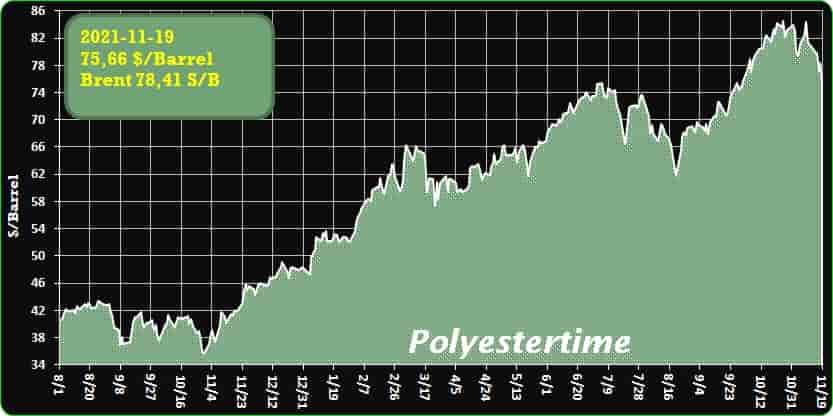
-UniteChem expands its portfolio of high-performance light stabilizers
UniteChem Group has recently started full-scale production of advanced high-performance light stabilizers UniteChem LS2020 and LS119 in its newly commissioned production facilities
“UniteChem Group began producing industry-standard light stabilizers such as UniteChem LS944 in 1997 and has been continuously expanding its polymer additives portfolio ever since”, says Junyi Lin, CEO of UniteChem Group. “Today, we are proud to be among the world’s largest-capacity suppliers of light stabilizers and other plastic additives, offering over 40’000 tons of finished products. Our full backward integration with a production capacity of over 80’000 tons of intermediates provides extensive production flexibility, high reliability, and maximum quality control. Current production, located in two state-of-the-art production facilities in Jiangsu province, is now in process of being complimented with two new major production facilities in Jiangsu and Sichuan provinces, with completion in 2022/23.”
UniteChem LS2020 is a modern HALS (hindered amine light stabilizer) offering excellent anti-aging properties in applications such as cross-linked polyethylene, olefin copolymers and other polymer materials. UniteChem LS119 is especially suited for use in polyethylene greenhouse film applications, polypropylene fibres, TPO automotive parts as well as other polymers such as EVA, EPDM, PA, PET and PMMA. With these product additions, UniteChem Group further enhances its commitment to offer customers the most up-to-date and value-added product portfolio.
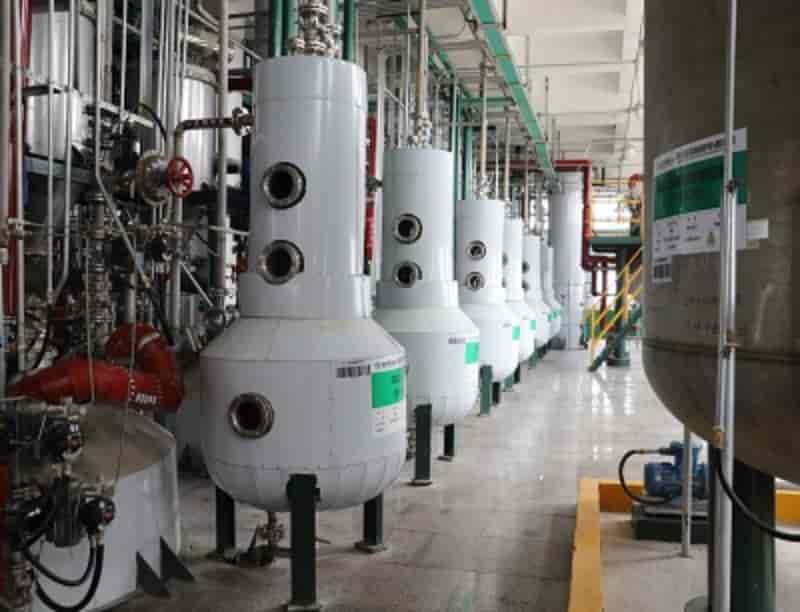
-Amcor technology to help process small plastic bottles often lost in the recycling process
Amcor Rigid Packaging (ARP) has debuted a technological advancement that makes it possible for billions of small bottles to be recycled.
ARP is first applying the technology to 50 mL spirits bottles. These bottles, while made of recyclable polyethylene terephthalate (PET), are often lost in the recycling process due to their small size. Most people recognize these as the little liquor bottles often served on airplanes. Despite its material being infinitely recyclable, the size of these bottles presents challenges at most U.S. material recycling facilities. The bottles tend to slip out of the sorting process where broken glass is filtered out for disposal.
“We know that many small bottles are falling through screens in our MRFs designed to separate glass, so this is a major development – it allows these bottles to pass this step in the process and have the opportunity to be captured by the appropriate equipment downstream. At a time when the recycling industry is constrained by material supply, every additional pound diverted from waste makes a big difference,” said Curt Cozart of the Association of Plastic Recyclers. Light Stabilizers Plastic Recycling
With its pledge to develop all its packaging to be recyclable, compostable or reusable by 2025, Amcor is always innovating to increase the recyclability of its products. Seeing an opportunity for improvement, ARP’s team of engineers examined the issue and began designing a container that collapses in a controlled way to maximize its width. With a collapsed width greater than 5 cm, this design would no longer slip through the cracks at most U.S. recycling facilities.
“This discovery was made by the Amcor team when testing revealed that the bottles collapse in different ways,” said Terry Patcheak, VP of Research & Development and Advanced Engineering at ARP.
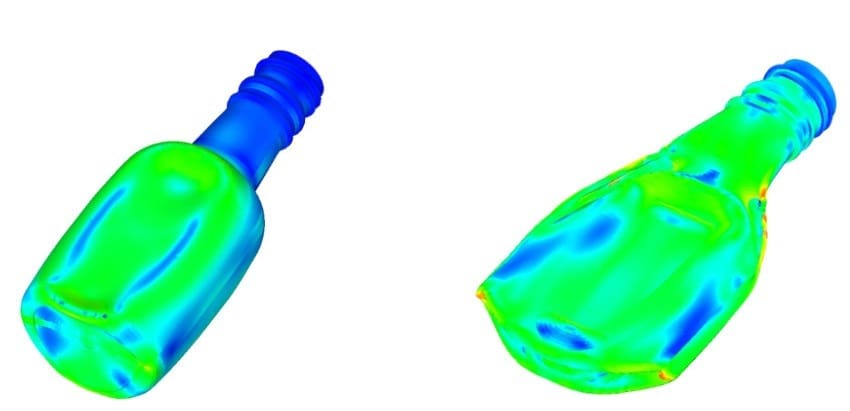
-Festive season 2021 auto demand worst in decade: FADA
Semiconductor shortages, petrol prices and weakening demand for two-wheelers and entry-level passenger cars impacted sales during the 42-day festive season in 2021, said FADA
Auto dealers await the festive season with bated breath every year with almost double the average sale volumes across segments during the period. However, in 2021, semi-conductor shortages and subdued demand in the entry-level segments ushered in what was described as the “worst festive season in a decade” for dealers this year.
According to the Federation of Automobile Dealers Associations (FADA) while demand was healthy in SUV, Compact-SUV and luxury categories, dealers couldn’t do brisk businesses owing to shortages of vehicles. Light Stabilizers Plastic Recycling
“On the other hand, entry-level cars saw subdued demand as customers in this category continued to conserve money due to their families healthcare needs,” said FADA President, Vinkesh Gulati in a statement released along with vehicle retail data for October 2021 and 42 days festive period.
During October 2021, vehicle sales declined by 5.33% year on year at 1.36 million as compared to 1.44 million vehicles sold in October 2020 and 1.86 million sales during October 2019, as per FADA data.
Two-wheeler sales continue to remain subdued owing to rural distress due to triple-digit petrol prices and reduced spending capacity as consumers preferred to conserve cash for healthcare emergencies in wake of the pandemic.

-Japan’s Mitsui Chemicals plans PP recycling business
Japanese petrochemical producer Mitsui Chemicals plans to establish a recycling business of mixed plastics consisting mainly of polypropylene (PP). It aims to begin verification of the technology within the April 2021-March 2022 fiscal year.
Mitsui Chemicals will work with domestic chemical venture Microwave Chemical to turn mixed plastic waste such as automotive parts and bathtubs into raw monomers. Microwave Chemical’s technology could overcome challenges in recycling mixed plastics, Mitsui Chemicals said. The company aims to reduce CO2 emission by processing waste plastics without turning them into oil first and by using renewable energy for the process.
Fellow petrochemical producer Mitsubishi Chemical also explores
Japan’s Mitsui Chemicals plans PP recycling business
Japanese petrochemical producer Mitsui Chemicals plans to establish a recycling business of mixed plastics consisting mainly of polypropylene (PP). It aims to begin verification of the technology within the April 2021-March 2022 fiscal year.
Mitsui Chemicals will work with domestic chemical venture Microwave Chemical to turn mixed plastic waste such as automotive parts and bathtubs into raw monomers. Microwave Chemical’s technology could overcome challenges in recycling mixed plastics, Mitsui Chemicals said. The company aims to reduce CO2 emission by processing waste plastics without turning them into oil first and by using renewable energy for the process.
Fellow petrochemical producer Mitsubishi Chemical also explores polymethyl methacrylate recycling with Microwave Chemical, aims to begin commercial operation by 2024. Light Stabilizers Plastic Recycling
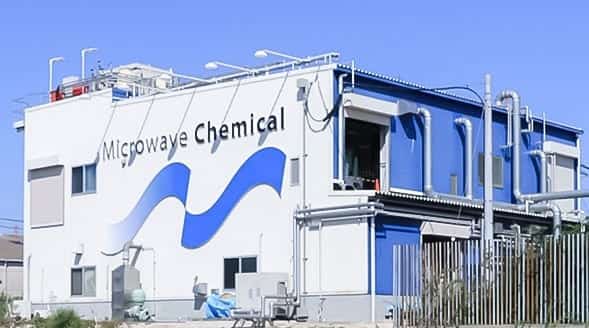
-Borouge launches seven new high performance polyolefin grades to support sustainability
– Recognised properties of the new grades make them ideal to support the growing demand of circular economy in the packaging and infrastructure industries
– New product launches reinforce Borouge’s commitment to pursue excellence and innovation Light Stabilizers Plastic Recycling
Borouge, a leading petrochemical company that provides innovative, value creating plastics solutions to various industries, has launched seven new polyethylene (PE) and polypropylene (PP) grades for packaging, agriculture and infrastructure applications at ArabPlast 2021. The new launches contribute to addressing the current market needs, supporting sustainability and circular economy ambitions and adding value to customers.
As a responsible petrochemicals company, Borouge is committed to driving plastics’ circularity for a zero waste environment. Aiming towards achieving its sustainability goals, Borouge focuses on creating innovative solutions that promote designing for recyclability while ensuring material specifications are met, incorporating recyclates in end user applications and driving recycling efforts post-consumer use.
“We are excited to launch our innovative and newly-developed polyolefin solutions that provide our customers in the packaging and infrastructure sectors with unique benefits to improve their production of better end-use products, enhance cost effectiveness, support their sustainability goals and unlock new opportunities and markets for them,” said Khalfan AlMuhairi, Borouge’s Senior Vice President for the MEAE Region.
For the packaging industry, BorPureTM HJ333MO is the next generation high flow 75 Melting Flow Rate (MFR) PP homopolymer that Borouge has developed based on the proprietary Borstar® Nucleation Technology (BNT) combined with unique Borstar® reactor design. BorPureTM HJ333MO is a reactor grade which offers excellent organoleptic properties and efficient processing due to BNT nucleation, high flowability and cycle time benefits. Articles moulded from this product exhibit good dimensional stability and good stiffness / impact – balance and optical appeal as a new star in the BorPure family. BorPureTM HJ333MO also offers a more cost efficient thin wall production process through its high stiffness, better demolding and lower warpage properties that unlock great value when being applied on many packaging solutions such as takeaway food packaging, twin wall packaging, lids, media packaging and trays.
Borouge has developed HD168MO, a new 10 MFR homopolymer PP grade produced using the Borstar® Nucleation Technology (BNT). The new grade promotes a great stiffness / impact balance and provides down gauging potential. Its increased crystallisation temperature allows reduced cycle time and increased output and is designed for applications such as rigid containers, household articles, garden furniture, caps and closures.
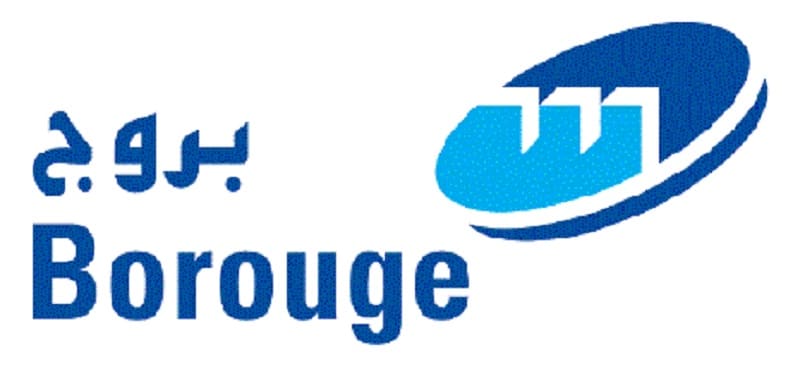
-Toray Industries : Develops Transparent, Heat-Resistant Film for 5G Communications
Toray Industries, Inc., announced today that it has developed a new film for 5G communications. The film offers excellent transparency, heat-resistance, flame-retardancy, and dielectric performance.
Wide-ranging prospective applications include transparent 5G antennas, transparent flexible printed circuit boards (see Glossary note 1), transparent heater substrate materials, and other electronic components. They would also encompass construction materials that benefit from the film’s transparency and flame retardancy, and process release films requiring chemical and heat resistance to ensure visibility for inspections and positioning. The company has begun providing samples to users, and will keep pushing ahead with R&D to accelerate commercialization.
5G technology offers ultra-fast communications for broadband cellular networks but also requires numerous antennas. That is because it uses higher frequency radio waves with short ranges. This situation propelled efforts to explore transparent antennas with good visibility and design that can be installed in all sorts of locations. Existing transparent circuit boards employ polyethylene terephthalate film and transparent polyimide film because they are light and unbreakable. However, their dielectric loss tangent (see Glossary note 2) are high, causing large signal losses in 5G communications.
On the other hand, the Toray-developed Torelina®, is ideal for 5G circuit boards because of its outstanding heat resistance, flame retardancy, electrical insulation, and consistently low dielectric loss tangent in varying temperature and humidity conditions.
Torelina® is the world’s only bi-axially oriented polyphenylene sulfide film (see Glossary note 3). However, the film is opaque, with the typically yellow tinge of heat-resistant polymers. That is because tiny voids inside the film scatter light and result in low transparency. Light Stabilizers Plastic Recycling
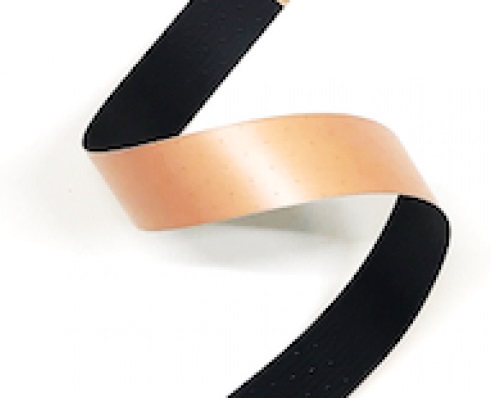
-Unitika Debuts CNF-reinforced Polyamide, but It’s the Other CNF
A polyamide 6 grade from Japan’s Unitika is reinforced with CNFs, in this case cellulose nanofibers rather than carbon nanofibers. The sustainable solution based on plant-derived fibers is reportedly readily recyclable, and targets application in automobile parts, home appliances, and outdoor goods. Unitika also reports three recycling cycles are achievable with no apparent degradation in properties.
Key to development of the new composite materials is dispersion of the CNFs at high loading without having to modify the fibers. Unitika has been able to replicate or even better the physical properties of 30% glass-fiber-reinforced polyamide 6 with its CNF-reinforced grade. Light Stabilizers Plastic Recycling
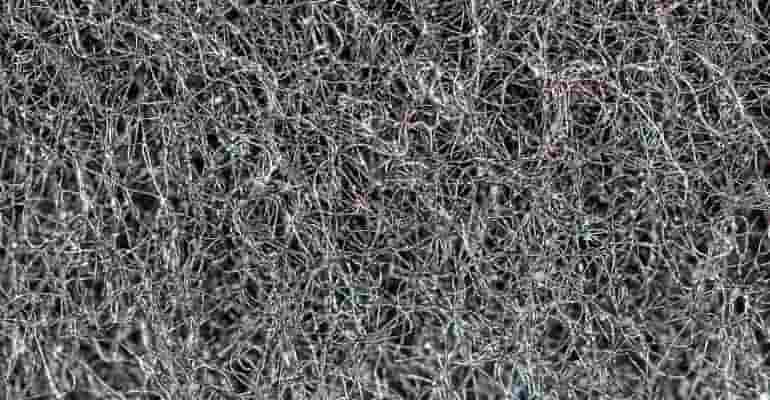
-Arkema Introduces Medical-Grade ‘Bio-Circular’ PA 11
The easy-to-process polymer is sufficiently stiff to replace metal parts in surgical devices and has a much lower climate-change impact than comparable, fossil-based plastics.
A new polyamide (PA) 11 developed for medical applications combines performance and lightweight properties with sustainability credentials. Part of Arkema’s Advanced Bio-Circular materials portfolio, Rilsan MED PA 11 is based on the company’s flagship amino 11 chemistry, which is derived from castor bean oil, and can help medical device OEMs achieve corporate sustainability goals. Light Stabilizers Plastic Recycling
Rilsan MED PA 11 is formulated with 65% glass fibers, resulting in a tensile modulus of 18.5 GPa. This property makes the material a suitable candidate to replace metal in surgical tools, according to Arkema. Processability features, including low mold temperatures and injection pressures, helped early adopters to easily switch materials and decrease cycle times while maintaining component integrity, said Arkema.
Rilsan MED PA 11 withstands repeated gamma, steam, E-beam, and EtO sterilization cycles and exposure to harsh chemicals. Biocompatibility has been assessed according to USP Class VI and ISO 10993-4, -5, and -10 standards.
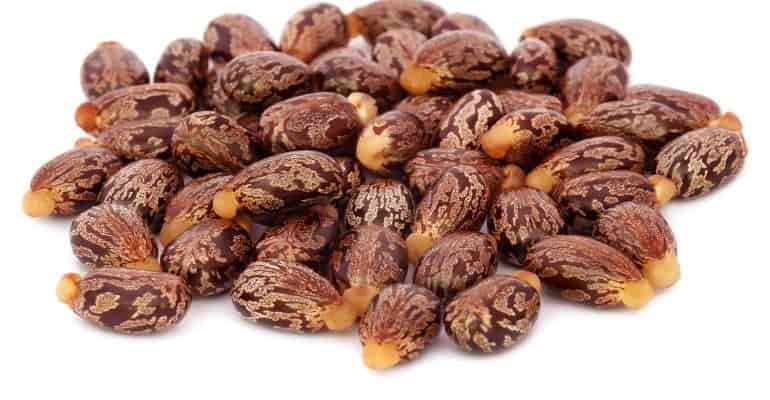
Light Stabilizers Plastic Recycling
